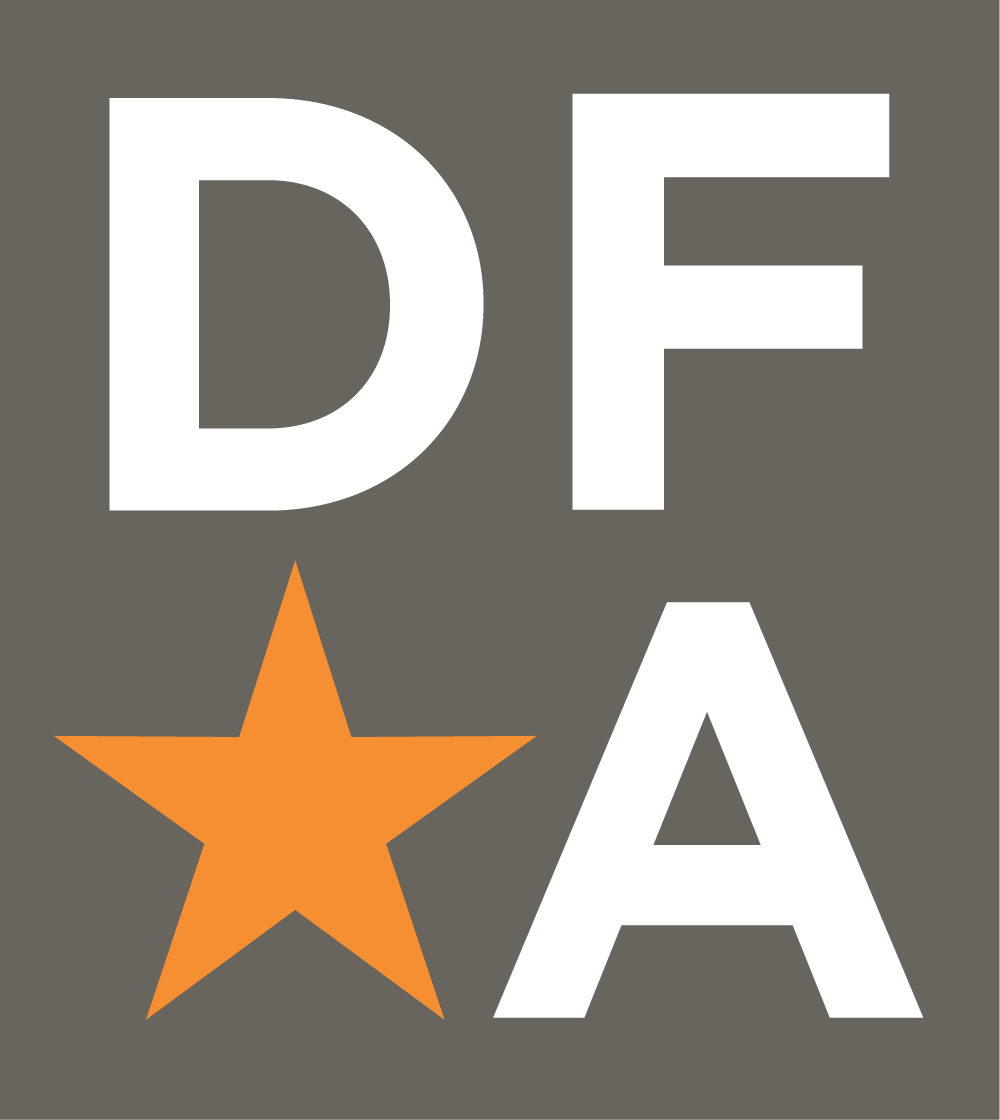DFA Students and Alumni Author Four New Challenges
This post was originally published in August 27, 2020.
Inspired by the need to meaningfully connect a network in the midst of social distancing, the DFA Days of Summer Project Scoping Jams allowed DFAers to engage with each other while building tools and resources for students. Alumni and students were invited to form teams and scope complex problem spaces into focused project prompts for student teams to take on in the Fall.
This initiative brought together a cohort of 20 DFA students and alumni, representing 15 of our 38 studios. For eight weeks, four teams collaborated and researched remotely, overcoming the barriers of geographic distance, time zones, and even oceans to produce the newest additions of the DFA Challenge Library: projects within the areas of Civic Engagement, Food Access, Education, and Mental Health.
The DFA Challenge Library is a dynamic collection of open projects created by and for the Network. A growing tool, it holds hundreds of hours of research, providing teams with the resources needed to start a project informed. In addition, DFA teams who take on one of the Challenges collaborate with other teams working on the same project and receive structured support from DFA National.
Learn more about the new Challenges from the teams themselves below. Students interested in working on a DFA Challenge this term should fill out the Welcome Form before Thursday, September 10.
Ethical Student Community Engagement
The Project Scoping Jams ended up being a great learning opportunity for managing remote design projects. The short timeline helped our team focus on what’s feasible, both for our own work this summer as well as teams taking on the challenge going forward. One of my biggest takeaways from the experience is that this focus on feasibility didn’t stop us from thinking big, it just had us thinking closer to home. The final challenge we proposed is one where students can make a real impact in one semester because it’s centered in a community they already belong to. Especially with Covid-19 leaving many non-profits over-burdened, a shift towards campus partners this fall is a great option for studios across the network. I’m excited to see the work this challenge inspires and the tangible impact I hope that work creates.
Project reflection by Jane Gormley
Research Leads: Jane Gormley, DFA WashU; Malaika Franks, DFA RISD|Brown
Researchers: Kate Rose, DFA Tulane; Kendal Aldridge, DFA U Alabama; Matt Weiss, DFA U Cincinnati
Food Insecurity + Caretaker Communities
Food is at the core of our everyday lives. It is sustenance, it is nourishment, and it is joy. And yet for food insecure communities that plague ⅛ of the United States population, there isn’t enough to go around. Through this project, we explored the narrative behind this statistic and the varying impacts it has on food insecure communities.
To the next DFAers, we challenge you to consider how you can leverage your power in the DFA community to empathize and design for the obstacles of caretakers in families by empowering the communities that support them. How can we design for the multi-dimensionality of food access and complex inter-human connections that determine one’s access to food?
Research Lead: Jamie Xu, DFA Wash U
Researchers: Alecia Kuhl, DFA JHU|MICA; Brooke Williams, DFA Notre Dame; Jennifer Greenstein, DFA JHU|MICA; Jiyoon Moon, DFA Barnard|Columbia; Linda Lay, DFA MSU
Supporting Teachers & Student Autonomy
It was an incredible experience to work with DFAers from across the country to put together a truly meaningful project. Because the real world now expects high school graduates to be creative + independent thinkers, we want to help k-12 teachers design lessons that foster this mindset. Through increasing student autonomy in k-12 education, we know we can encourage the next generation of thinkers to solve huge issues with confidence and perseverance.
Research Lead: Michael Moran, DFA Rice
Researchers: Aivy Phan, DFA U Washington; Audrey Lord, DFA CWRU|CIA; Megan Rogers, DFA Notre Dame
Mental Health of Frontline Workers
Mental health is ever more important to address as we continue to face the effects of the pandemic, layered with politics and systemic, racial injustice. As more and more people around us will be considered to be frontline workers—who will have the additional mental toll of having direct exposure to the risk of COVID-19 as they carry out their daily work, some having to directly treat COVID-19 patients, who have to worry about potentially posing a risk to their loved ones and the people around them—we challenge DFAers to consider, how we can redesign the current system to support the mental needs of frontline workers now and through the aftermath of the pandemic?
“Just because no one else can heal or do your inner work for you doesn’t mean you can, should, or need to do it alone.” – Lisa Olivera
Research Leads:Manuela Burek, DFA UIC; Cherilyn Tan, DFA RISD|Brown
Researchers: Cindy Van, DFA UIUC; Jeffrey Qiu, DFA U Washington; Leslie Sern, DFA CWRU|CIA
View these Challenges and more in the DFA Challenge Library.


